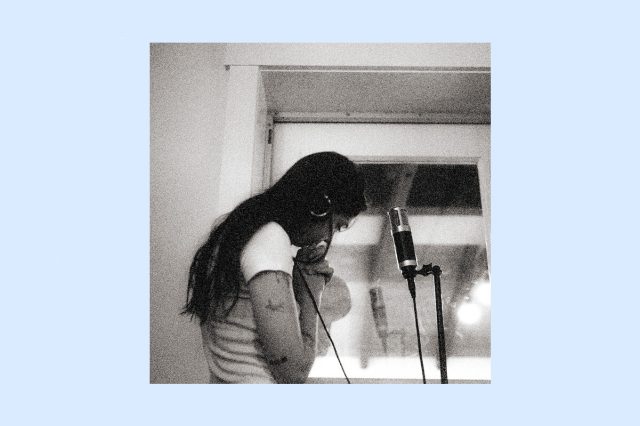[ad_1]
We know internet-viral “ceilings,” but do we know Lizzy McAlpine? Establishing herself in the mainstream industry, her new album Older (and Wiser) invites listeners in and distinguishes the indie pop-folk artist from the many TikTok one-hit-wonders. Older initially dropped in April 2024, with McAlpine concluding her narrative through five additional songs in the deluxe version, Older (and Wiser), released early October. She commented via Instagram, “these songs are the last things i have to say about the story of Older, and i think they wrap it up pretty nicely.”
Akin to the cohesiveness of her sophomore album five seconds flat, McAlpine traces the intricate arc of a flawed relationship, with pages from her story unfolding track by track.
The opening song “The Elevator” is short yet succinct at one minute and 40 seconds. Lyrics like “It wasn’t slow, it happened fast / And suddenly the only thing I saw was you” introduce the relationship persistent throughout Older (and Wiser). Brimmed with delicate piano and haunting hums, McAlpine’s naivety is palpable within the concluding lines, “I think we can make it / I hope that I’m right.”
Yet, the beginning of the relationship’s end ensues quickly, with “Like It Tends To Do” speaking to an ever-present uncertainty. McAlpine doesn’t hide behind the gentle ballad’s quiet strings, questioning, “Would it feel like it felt when we had nothing to lose? / Or would everything have changed like it tends to do?” Tracks like “Movie Star,” “Staying” and “Better Than This,” threaded together with more bare production and notions of identity and doubt, serve as indistinguishable testaments to her preemptive grieving of the relationship. McAlpine’s layered harmonies are notable and her lyrics are genuine — but frankly, it’s repetitive. Rather, it’s the tracks abundant with heavy instrumentals and raw vocals that invite us into the album’s potential.
“Broken Glass” is by far the most dynamic track on Older (and Wiser), with thunderous drums and an angry bridge granting a reprieve from songs rooted in soft piano and simple vocals. Laced with an eerie assembly of strings and subtle flute, the relationship’s see-sawing nature has peaked: “It might seem like I love you / But I just don’t want to be alone.” McAlpine demonstrates her vocal capability as quiet harmonies become aching pleas, culminating to “We’re coming to the end / Breaking glass.”
Serving as the original album’s conclusion, “Vortex” is especially compelling with the lines “Someday I’ll be able to let you go” and “Someday you’ll come back and I’ll say no” followed by a gripping symphonic crescendo. McAlpine was inching toward resolution, yet the additional tracks erase any progress and emphasize that “someday” is not today. “Spring Into Summer” becomes the closing track to extended Older (and Wiser), yet ironically leaves audiences questioning what McAlpine has truly learned. Guided by tender guitar and a bright beat, lines like “You’re always gonna be someone that I want” and “And now I’m here forever, runnin’ back to you / Always,” reveal that McAlpine is not over the history encompassing each verse and every snare hit. She seemingly returns to the enduring cycle, leaving listeners hoping that maybe, with another passing of the seasons, McAlpine will cease the push and pull and depart for good.
Though McAlpine gravitates toward slightly monotonous, stripped-down tracks, her lyricism remains sincere and her vulnerability admirable. Older (and Wiser) is a lyric-driven project riddled with themes of romantic uncertainty, self-doubt and realization: an honest ode to heartbreak and personal growth.
A lovely vocalist with a knack for painfully self-aware prose, McAlpine could gain something from leaning away from refined tracks and into the grittier, bolder disposition we know she’s capable of. While it’s true she’s older, Older (and Wiser) doesn’t confirm she’s all that wiser — yet.
Daily Arts Contributor Carly Anderson can be reached at carlyand@umich.edu.
Related articles
[ad_2]
Source link











